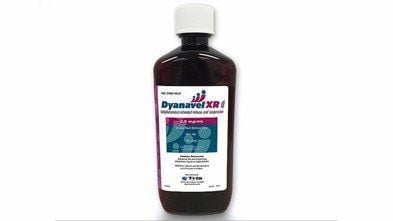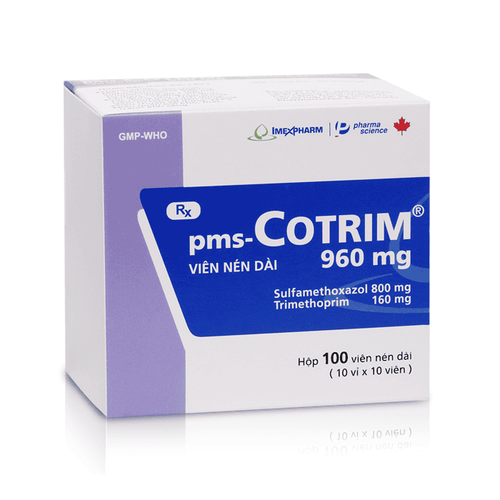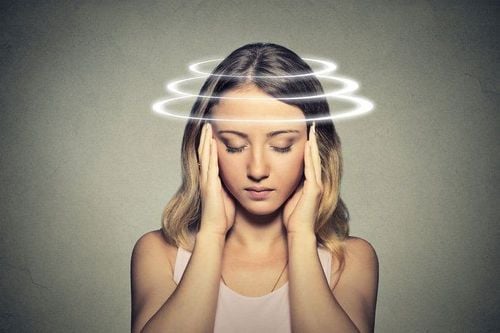This is an automatically translated article.
The main purpose of using drugs to treat vestibular disorders is to control symptoms, minimize functional disability, and improve the patient's quality of life.
1. What is vestibular disorder?
Vestibular disorders are balance-related disorders, arising from the 8th nerve and its connections. Because the 8th nerve is responsible for hearing and balance functions, damage to this part will cause the transmission of information to be wrong, leading to loss of body balance, dizziness, dizziness or tinnitus.
Vestibular disorders can be divided into 2 types:
Peripheral vestibular disorders: This is the most common disorder that causes symptoms such as transient or severe dizziness that makes the patient unable to move. . In addition, in severe patients, it can also cause vomiting, tinnitus, hearing loss, headache, difficulty concentrating. Central Vestibular Disorder: A less common form, manifesting mainly on the vestibular system of the central nervous system with the patient having difficulty walking, dizziness, and vertigo that may be caused by the ear. cerebrovascular disease , inflammation or brain tumor .

Mục đích chính của việc dùng thuốc rối loạn tiền đình là kiểm soát các triệu chứng
2. Medicines to treat vestibular disorders and use notes
Depending on the stage and clinical symptoms of each patient, the drugs to treat vestibular disorders will be different. Specifically:
Acute stage: The patient should be placed in a place with soft light, quiet, lying with his head low, avoiding swinging; use antiemetic, sedative, antihistamine and cholinergic drugs; Benzodiazepine can be combined with Corticosteroids Chronic phase: Vestibular rehabilitation therapy, injection of Gentamicin and Steroids, surgery if other methods are ineffective and the patient is very debilitated Specific vestibular disorders drugs commonly used as follows:
Antiemetics: Domperidone, Dimenhydrinate to help relieve symptoms; Benzodiazepines are used for sedative and anxiolytic purposes in certain situations. Discontinue the drug when the acute symptoms disappear; Corticosteroids: Sometimes used especially in cases of sudden hearing loss, decreased intensity of dizziness and tinnitus. However, it should be noted that side effects such as increased blood pressure, digestive disorders, weight gain, increased risk of infection; Dizziness: Betahistine may reduce the severity of nausea or ringing in the ears; Diuretics: Acetazolamide or triamterene can help the kidneys excrete more and reduce pressure in the inner ear. The drug requires strict medical supervision because it can cause dangerous electrolyte disturbances.

Domperidone là 1 trong các thuốc rối loạn tiền đình thường được sử dụng
3. Non-drug treatments for vestibular disorders
In addition to using drugs, diet, exercise and rest also contribute significantly in the treatment of vestibular disorders. Patients should take the following measures to minimize vestibular conditions:
Change in diet: Build a nutritious diet, avoid stimulants that cause increased symptoms of tinnitus, reduce blood supply to ears, foods that are too salty or too sweet, carbonated water, alcoholic beverages because they can affect the nervous system, causing increased headaches and dizziness; Vestibular rehabilitation exercises guided by a physiotherapist; Positive pressure therapy: Your doctor will use a low-pressure pulse generator to apply positive pressure to the middle ear area to reduce fluid buildup. Patients usually need 3 sessions, 5 minutes a day to effectively control vertigo; Endovascular decompression surgery: The aim is to reduce pressure in the ear by opening the endolymphatic sac to allow the fluid to escape. Surgery is performed when it is desired to preserve the structure of the inner ear and hearing; Chemical labyrinthectomy: is indicated when the patient's hearing function is very poor, tinnitus, dizziness is very uncomfortable. The principle of treatment is to destroy vestibular cells with drugs that are toxic to the ear, but in return there is a risk of hearing loss, so it should be monitored regularly. Labyrinthectomy: That is, complete destruction of the ear. disease in the inside, but will permanently lose balance function and hearing. In short, using medication to treat vestibular disorders helps control symptoms for patients. In the process of taking the drug, the patient should pay attention not to exceed the prescribed dose, visit the doctor regularly to detect other symptoms or depression early and stop treatment.
Currently, Vinmec International General Hospital is one of the most prestigious medical treatment units for neurological diseases in Vietnam. The Department of Neurology at Vinmec has the function of examining, diagnosing, consulting and treating diseases related to neurological factors, including headaches, vestibular syndrome, cerebellar syndrome, dementia The typical method of the department is to use intravenous and arterial fibrinolytic drugs for stroke cases, along with the combination with paraclinical means such as electroencephalography, electromyography. ST Scan, MRI,...
Neurological examination at Vinmec, customers will receive:
Examination by a team of highly qualified and experienced specialists; State-of-the-art equipment, comparable to major hospitals in the world: The most modern operating room in the world; The most modern silent magnetic resonance imaging machine in Southeast Asia; the 16-sequence PET/CT and SPECT/CT systems help to detect the damage of the nervous system early even when there are no symptoms of the disease; Apply the most advanced intensive treatment techniques in the world in treatment.
Please dial HOTLINE for more information or register for an appointment HERE. Download MyVinmec app to make appointments faster and to manage your bookings easily.













